“My mum would pray for me”: Sadia Azmat and Monty Onanuga discuss why there are no taboos on No Country for Young Women
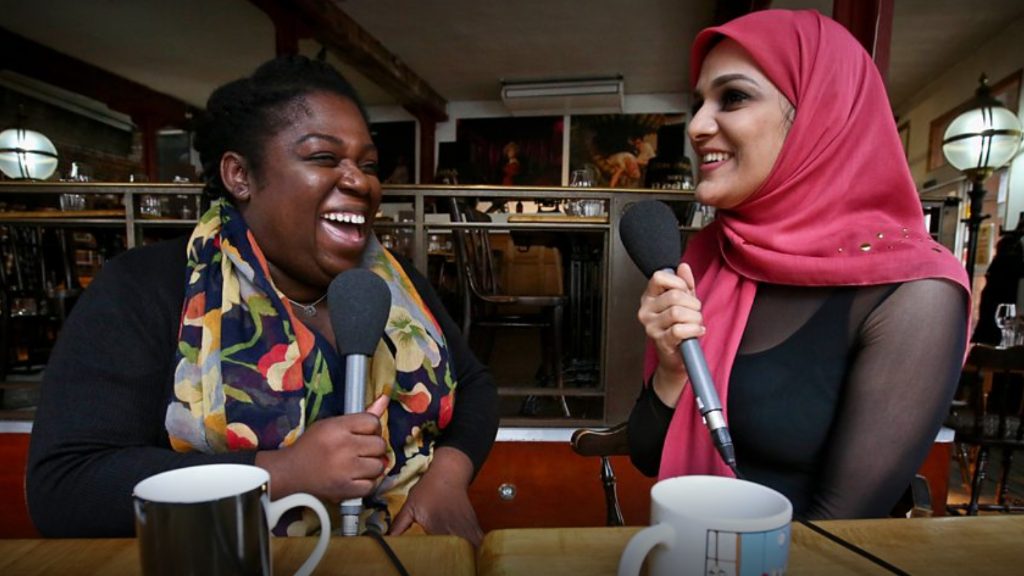
A bank doesn’t sound like the most natural setting to talk about sex and shaking up the status quo, but the stars of new BBC podcast No Country for Young Women exude a warmth and energy that could probably make you feel at ease if you were dangling by your toes from the top floor of the Shard. Indeed, in the company of Sadia Azmat and Monty Onanuga, it’s only a matter of time before the clinical conference room transforms into a cosy couch.
The two friends launched the show earlier this year with the hopes of providing an insight into how to “balance your ethnic” and get ahead in a white world. This is not to say they compromise their principles, and standup comic Azmat stringently maintains that the pair have never played the race card, something which annoys her given that it “would probably get us at least free Wagamama or something”. The comedian has an ability to disarm you with the unexpected direction of her jokes, as well as her (over)generous capacity to sympathise with white people’s reluctance to relinquish their privilege.
Having been stopped by the police for the colour of her skin (yes, this is something that happens) Monty is perhaps the warier of the two, but this doesn’t stop her laughing about her ridiculous encounters. Though she claims she has been shielded from the sharpest edges of discrimination by a “white voice” and a “’man’s name”, Onanuga is all too aware of the mountain still to climb, even as she enjoys her own success in the financial sector. Nonetheless, she is adamant that the pair are far from role models, but rather a sounding board for women.
I sat down with the dynamic duo as they explained why their show welcomes male listeners, the importance of failure in their success and why their parents don’t listen to their podcast.
No Country for Young Women feels ground-breaking in that it provides a voice and opens up a dialogue for minority women everywhere. Do you feel that you would have benefitted from this kind of show when you were growing up?
Monty Onanuga: I think so, because I grew up in a part of England where there aren’t many black or Asian people, and it was during a time when I wasn’t quite so confident in myself, so I wasn’t always sure if I was doing the right thing with my ethnic side vs. my British side. So I guess having a little guidance from people who have been there, done that, and they say it’s actually alright – you will actually be ok if you do decide to lean on your British side or your ethnic side more often – is quite helpful.
Sadia Azmhat: I grew up with loads of mixed people, and not enough white people, so – not enough is a weird phrase, you know what I mean – I know this is my crutch, but I grew up thinking black people were really cool.
MO: Most people do.
SA: But I think that when it comes to understanding how to integrate, I think everybody wants to have a belonging. I think this is what this podcast is kind of being able to provide. I think when I was growing up, without trying to give my age away, I was pre 9/11, so I didn’t really care that I didn’t have much of a belonging, but since then – and since of lot of the political things that have happened – it’s become something a little bit more that I think about, and so, in hindsight, I think it’s cool.
Your show is honest and unfiltered, which gives it a more informal, accessible feel. What kind of response have you had from listeners? Are people relating to your experiences, and do you think that sharing them so openly is having a positive impact?
MO: So for my friends that have listened to this, it’s not unusual. Some of the stories or anecdotes that we’ve shared are not things I haven’t shared with my friends, so what we’re trying to hone in on is that these are normal conversations that young women our age have, and I know that historically, or ethnically, we don’t think about things like this, but it’s ok to have these discussions. And I think most people have welcomed the fact that we are very open and honest, and have championed the fact that we discuss our lives in great detail and the fact that we don’t shy away from it either. This is us; this is our lives and you’re getting the full effect I guess.
SA: And I’m actually waiting for some negative feedback, and I don’t mind, but we’ve been kind of blown away by the responses we get on e-mail and stuff, from people around the world; I wasn’t thinking it would go round the world.
MO: No, neither did I.
SA: So, it was kind of nice that it’s definitely touching people. I guess it also speaks true to the fact that everybody can relate to the fact that although you’re born in one place, you might associate with somewhere else, so it’s not restricted to particular demographics; it’s very universal.
Speaking of this universal approach, your guests span all kinds of backgrounds, countries, walks of life and genders. How important do think it is that your show offers a lot of perspectives?
SA: Very important.
MO: I know it’s called No Country for Young Women but it’s not exclusive to women alone; it’s not exclusive to people of colour alone; the conversations that we have are normal conversations that all girls have with their girlfriends, their friends. I can’t partake in the conversations that blokes have but I’m thinking it’s of a similar nature. The aim is to provide a safe haven for people to know that it’s ok to have these conversations, to voice any frequently asked questions that they get asked, and to, you know, use as a soundboard, so it’s open to all sorts: you’re welcome, you’re safe, and whether you are a black woman or a white woman, it’s a home for everyone.
In terms of sharing your experiences within this safe space, you talk a lot about sex and the female body. Is this something that you think women should talk about more in general?
SA: I think it’s not good for things to be taboo. I like to talk about things that are taboo and I think that we’ll all learn more by talking about things that are a bit hush-hush. Like, there was one episode where Monty was like, “you should go to the doctors and get yourself checked out”, and unfortunately without someone being able to have that conversation with you or even highlight some of the dangers of not doing that… so it can range from the basics to some of the more tantalising, titillating things that we haven’t thought about. So it’s cool, I don’t really think anything’s taboo on our podcast.
MO: No, I think we also live in a society where historically – or even currently – where women are seen to be objects for men’s pleasure, or we are not supposed to enjoy sex, we’re only here for child-bearing, and that’s about as good as we’re good for. But there is so much beyond what you see in music videos, or what your parents have grown up with. Sex is one of the most natural sorts of activities where a human person can interact with another human person, and it releases endorphins, makes you happy… I know it makes me happy [laughs] and there is no reason why a woman shouldn’t be fulfilled, if not more so, than a man.
SA: Why more so?
MO: We can go for a lot longer than they can.
SA: Oh.
MO: A lot longer than they can.
SA: Ah, ok, I’m like… 50/50
MO: I think it’s in equal terms but, for example, if I’m dating someone who says, “I’m not going to go down on you”, we’re not going to go anywhere.
SA: To be honest with you, it’s not the be all and end all for me, but if they’re saying definitely no, then that’s a bit rigid because then if I say, “do you want to go to Ibiza?” they might say definitely no, so where would the line stop? What are the boundaries? It’s too much, I can’t live like this.
MO: So yeah, I think the whole point is to let women know… I think it’s really important from a young age that you have to have as much enjoyment in that particular area as men do.
And do you think this is an argument that you could put forward for why men should listen to your podcast too?
Monty: Yeah!
[laughter]
SA: Clearly she’s got lots of evidence on guys who are in need.
MO: But there are some great men out there who are equally as invested in a woman’s orgasm.
SA: Yeah, I mean the thing is that I think the fact that the title is called No Country For Young Women is naturally a draw for men because we’re kind of an object of curiosity and we have had a male listenership, which is very good because we don’t want to alienate. It’s just a play on the film title No Country For Old Men, so yeah, I mean we want men to listen, not just to tell them how to satisfy their women, obviously, but just… I think that there’s lots of things they can relate to.
MO: Lots of things. So like, for example, colourism. So you’ve got the fact that it’s cool to be black, but it does depend on what kind of black you are. So, you know, if you’re a darker shade, people compare you to monkeys, for example, and a lot of people don’t potentially realise that that’s an issue because it’s not everyone else’s problem, if that makes sense. But within black and Asian culture, the fairer you are, the more desirable you are as you’re also closer to western ideals […] so the closer you are to what is deemed eurocentric beauty then the more appealing you are, and I don’t look like a Eurocentric person.
SA: But the good thing about Monty is that she’s very proud of her origins, and I think that she doesn’t have some of the – well I’ve spoken to other black people before… I have!
MO: [laughs] We believe you.
SA: It was a girl, and she was like, sometimes she has to look in the mirror and learn to love it, whereas Monty’s very proud of her background and origin which is really exciting and nice to hear.
MO: Yeah that comes down to my parents; my parents were very proud African people, very proud Nigerian people, and we’ve never grown up hiding the way that we look… maybe to tackle our hair easier, that’s the only challenge we have: it’s such a mission.
On the subject of families, Monty, have your parents listened to the show?
MO: Not a chance
SA: Huh? Monty’s Mum is a friend on Facebook, and she ain’t listened?
MO: No!
SA: Oh why, is she too busy? Monty’s mum is a busy woman.
MO: My mum, my mum would pray for me if she heard half of the stuff…
SA: But she’s already praying for her though, you know what.
MO: She is praying, but she would intensify that prayer.
SA: I think she’s praying for me too.
MO: My mum is so… when my mum found out that I had sex, she cried for a whole weekend. She cried for a whole weekend! If she then listened to the podcast and heard about some of the stuff that I was saying…
Sadia, your parents don’t know about it either?
SA: Nah, they don’t. It’s easier that way – for me anyway.
And your friends?
SA: Yeah, my pregnant friend listened to it and I had a comment about not giving my seat up to pregnant people, and she outed me; she was saying she was just joking but I felt bad because she’s pregnant… but yeah, I guess… Monty’s my only friend is what I’m trying to say… but no, people have listened to it and been supportive and that’s really nice.
Sadia, you made a documentary for the BBC about stupid things people often ask you, and you’ve obviously carried this onto the FAQ section of your podcast. So, how much of the racism you encounter do you think is down to ignorance, and does this have an impact on how you react to it?
SA: So first of all – touch wood – I would say that I don’t really get much racism, being around London which is so diverse. So yeah, in terms of what I think affects it, it’s political things in the news and stuff so like, before Trump, when I think it was Isis Isis Isis, I felt a bit more on edge, and felt like it could happen, and statistics show that, for example, hate towards Muslims spikes… so I think that there’s a link between that, but fortunately, I haven’t had much racism at all.
MO: I’d like to be able to say the same, but that’s not the case for me. So I grew up in London, my parents moved outside of London when I was about 15, so for most of my adult life I’ve lived 20 minutes from London […] and from school I had mixed-raced children calling me a black African b***h and telling me that I should go back to where I came from. I did offer to take their grandparents with me, so it wouldn’t have been a lone journey. I think a lot of it is ignorance. I haven’t come across anything too malicious in my adult life; I just think it’s plain ignorance. So my Christian name is not Monty, and when I used to work in retail, I used to have my full name on my name badge, and so people would pick up on the fact that my name is not British, so it’s foreign, and go: “that’s an unusual name; where are you from?” “I’m Nigerian”. “You speak really good English!” “Who would’ve thunk it, I’ve been practising for a really long time!” Uh, so comments like that: ignorance. Questions like “what does your hair feel like?”: ignorance. “Why doesn’t your hair look like that black woman’s hair?”: ignorance. It boiled down to ignorance and maybe not seeing enough of people that maybe look like me to have an understanding that not all people with foreign names speak with foreign accents.
SA: What I would add to that is, I think, people can be a little bit… I don’t know if insecure is the right word… you know when they think that we’re trying to take their jobs or something like that. There’s a fear of what accepting us might mean and I think there something to do with the fact that they are holding their territory, and if they lose their ground, that’s going to change their whole mentality or something, so you know what I mean, its like pulling a straw and it fall falls down so that’s why that straw, they’re holding onto it so tight, because it holds everything –their whole belief system – and so its very scary for them to perhaps change, so, y’know, we’re not that scary.
MO: We’re not.
You talk a lot about big issues such as mental health, religion and porn. Do you think it’s important to address potentially controversial topics through the lens of comedy?
SA: I definitely do, because I think sometimes it makes people relax over something that might make them feel tense if you were talking straight; so the joke can help them relax and not feel so tight about it… And also it’s just lovely to laugh. I love laughing.
MO: And it spreads, you know? One person laughs, and another person will potentially pick up on it as well. But like Sadia said, it’s easier to digest some of the tougher things if you can smile about it or think of a comical situation similar to the topic that you’re discussing […] And also, just generally, s**t happens. S**t happens. On a regular basis for me, unfortunately, but if you can’t laugh about it, I’m not really prepared to cry about it. So that’s how I approach it.
SA: It’s definitely a very powerful tool. I think you can tell a lot of truth with humour. And it’s nuanced; it doesn’t have to be on the nose, and I think it’s just a great technique.
Sadia, as a standup comic, how have you found the journey of making your name? Has it affected you being a minority woman and what advice would you give to other young women in your position?
SA: I think that women tend to have a harder time than men at the minute – anyway, from my experience. But I think that the fact I wear a scarf kind of numbs my womanhood a little bit. Which means I think that I haven’t had the same difficulty that some women do because I look a bit different, and I think that kinda helps […] My advice to women would be to follow your dreams and not to be scared of it not working out, because I think that the biggest thing you can do is regret… like my mentor said at the time: “you can either do this, or you can be 80 years old watching the X factor wishing you’d done something”. So don’t be afraid of failure, just follow your dreams and try and you’ll grow as a person and on the journey, it’s all character building and there’s nothing really to be afraid of.
MO: I think, just echoing the whole, not being afraid to fail, some of the best things you can do are the riskiest things, and if you don’t take a risk on the things that make you happy or the things that you think you might be able to do but you’re not completely sure, give it a go. We’ve all failed at something or another.
SA: Fail big, as Will Smith said.
MO: Its how you get better.
SA: That’s why we are so good: because we’ve made so many mistakes.
On a final pressing note, Has Matthew McConaughey been in touch yet?
SA: [gasps] I thought you had news there; oh God.
No, I’m afraid not.
SA: Actually guys, I have some hot-off-the-press news. I have a new celebrity crush. Not that he’s replaced Matthew McConaughey, but Jake Gyllenhaal is, at the minute, doing it for me. Anyway, I’ll leave it there.
Rosamund Kelby
To listen to No Country for Young Women visit the BBC’s website here.
For further information about Sadia Azmat visit her website here.

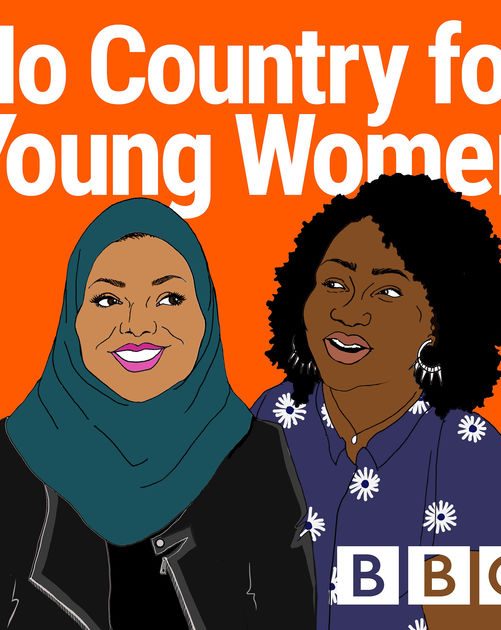
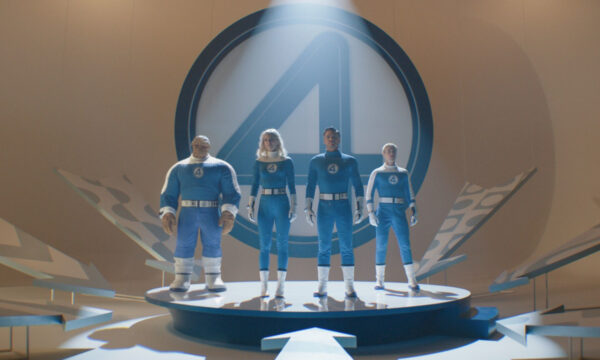
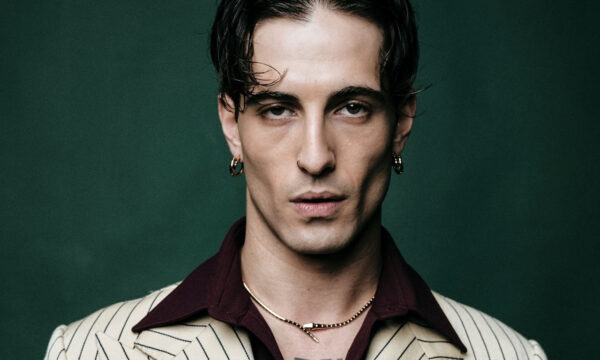
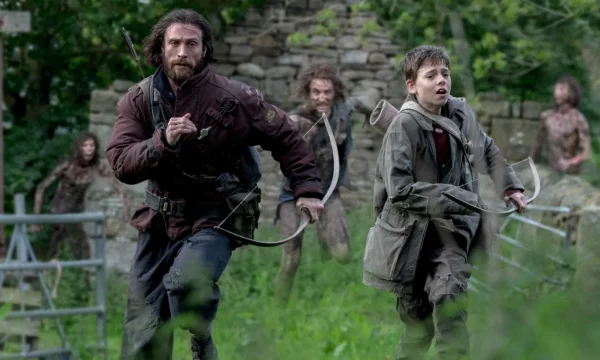
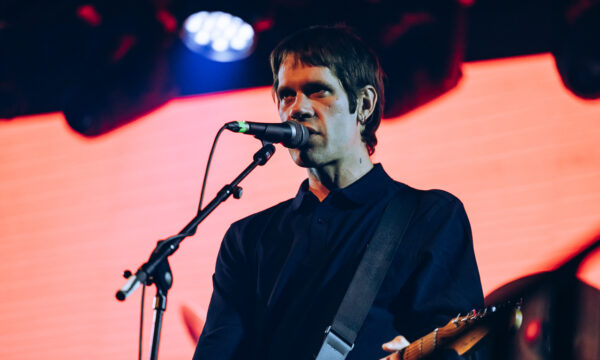

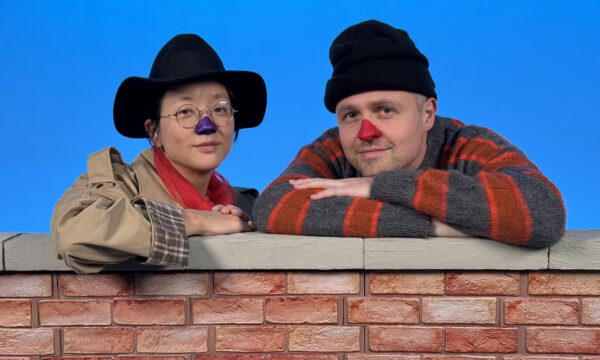
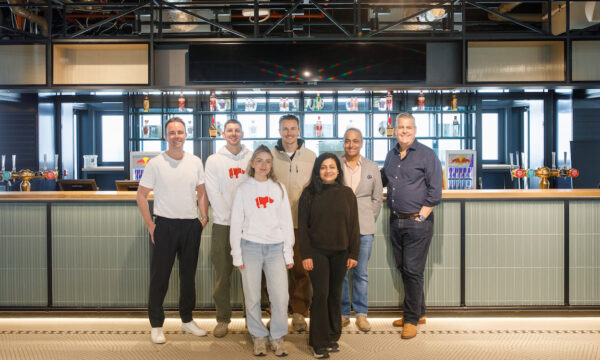

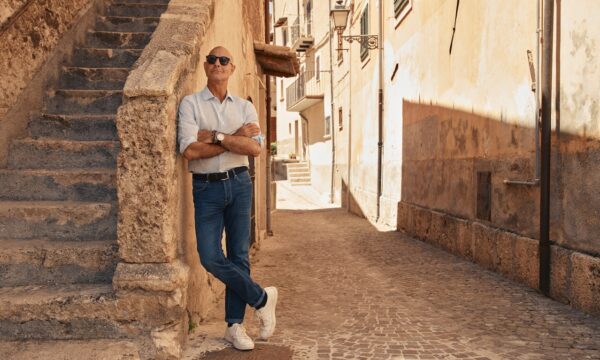














Facebook
Twitter
Instagram
YouTube
RSS